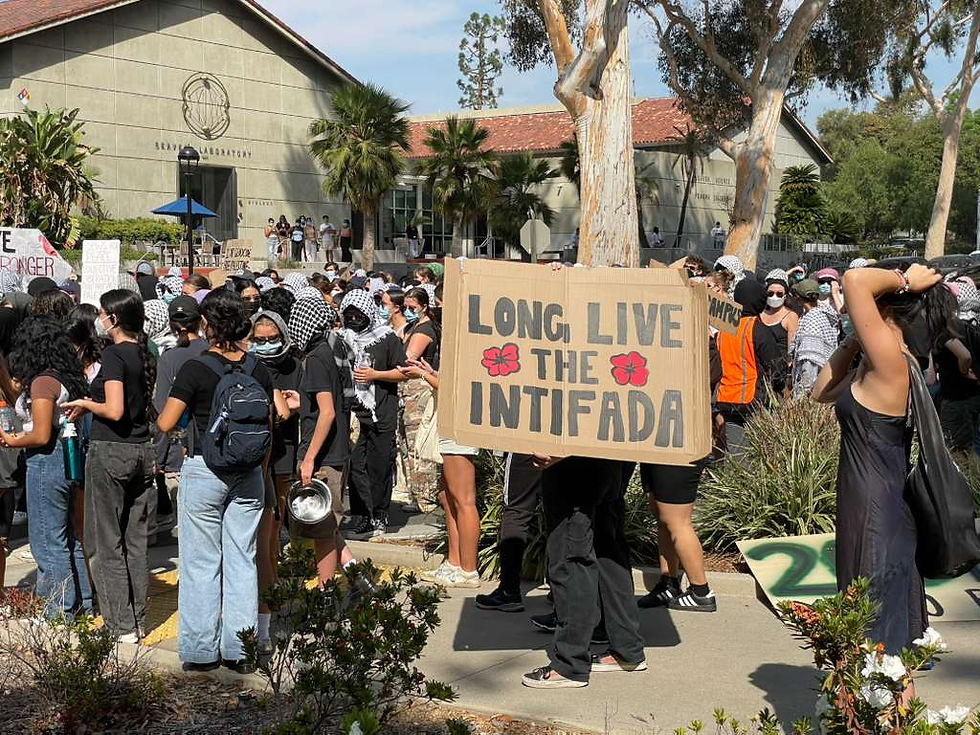Who We Are: 2019
- The Claremont Independent

- Sep 2, 2019
- 3 min read
At most other elite institutions of higher education around the country, students are agreeing with each other more and more, falling into a dangerous echo chamber. During the past few years, the Claremont Colleges—comprised of Pomona, Harvey Mudd, Claremont McKenna, Pitzer, and Scripps Colleges—have been no exception; we have had regrettable instances where political uniformity hastened the ideological echo chamber, from protests barring Heather Mac Donald from her talk to Scripps College inviting Venezuelan government propagandists for three semesters in a row but declining this publication’s invitation of Andrew Klavan, to Pitzer College banning this publication from reporting on discussions to end its study abroad program in Israel.
In an age where 90% of Pomona College students believe that the current environment prevents them from saying anything perceived as offensive, the Claremont Independent has long stood for the diversity of opinions across the Claremont Colleges campuses—that is, and will always be, our main goal.
And we are seeing a slow, but steady, climb out of the echo chamber at the Claremont Colleges; just last semester, Pitzer students started Free Speech Claremont, a club dedicated to civil discourse across the Claremont Colleges, Claremont McKenna College won the Heterodox Academy’s award for most viewpoint diversity in the nation, and Pomona College relaxed its speech codes.
Here at the Claremont Independent, our debates during meetings and the views of our staff reflect our commitment to diversity of opinion and a healthy dose of disagreement. With the upcoming election cycle in mind, we surveyed our staff members on a variety of issues, learning that our staff makes us perhaps the most ideologically diverse club on campus.
Politically, our staff is almost evenly split between Democrats, Independents, and Republicans, and this division is reflected on several core issues, from the environment to immigration.
On the environment—one of the hottest issues of this election cycle—while the majority of our staff believe that government should intervene with market-based solutions to climate change such as carbon taxes, views from staffers ranged outright denial of human causes of climate change to support of government legislation against climate change.
With a plethora of mass shootings over the summer, gun control has once again popped up as a major issue for both parties; our staffers’ views ranged from banning all firearms for civilians to strong support of the traditional interpretation of the Second Amendment, with most staff members favoring more restrictions but not an outright ban.
While this election cycle has skimmed over the issue of nontraditional marriage relative to other topics, we still thought it would be fun to see what staff thought of the issue: a plurality of staffers thought government should not regulate marriage—a traditionally libertarian view—while the remainder were split between opposition and support of nontraditional marriage.
On more economic issues, our staff is very split on both raising taxes to fund welfare and universal basic income (UBI)—a proposition made famous through Andrew Yang’s campaign. However, on trade, most staffers favored free trade over protectionism.
On perhaps the most divisive topic in American politics today, our staff has a plethora of views, ranging from supporting immigration for high-skilled immigrants to a hardline stance against undocumented immigration.
What is most notable is how some staffers who took a very liberal stance on one issue took a very conservative stance on another, reflecting the importance of free thinking at the Claremont Independent.
At the Claremont Colleges, where in most classrooms there is almost unanimous agreement, the Claremont Independent provides a platform for ideological diversity and disagreement.
.png)



Comments